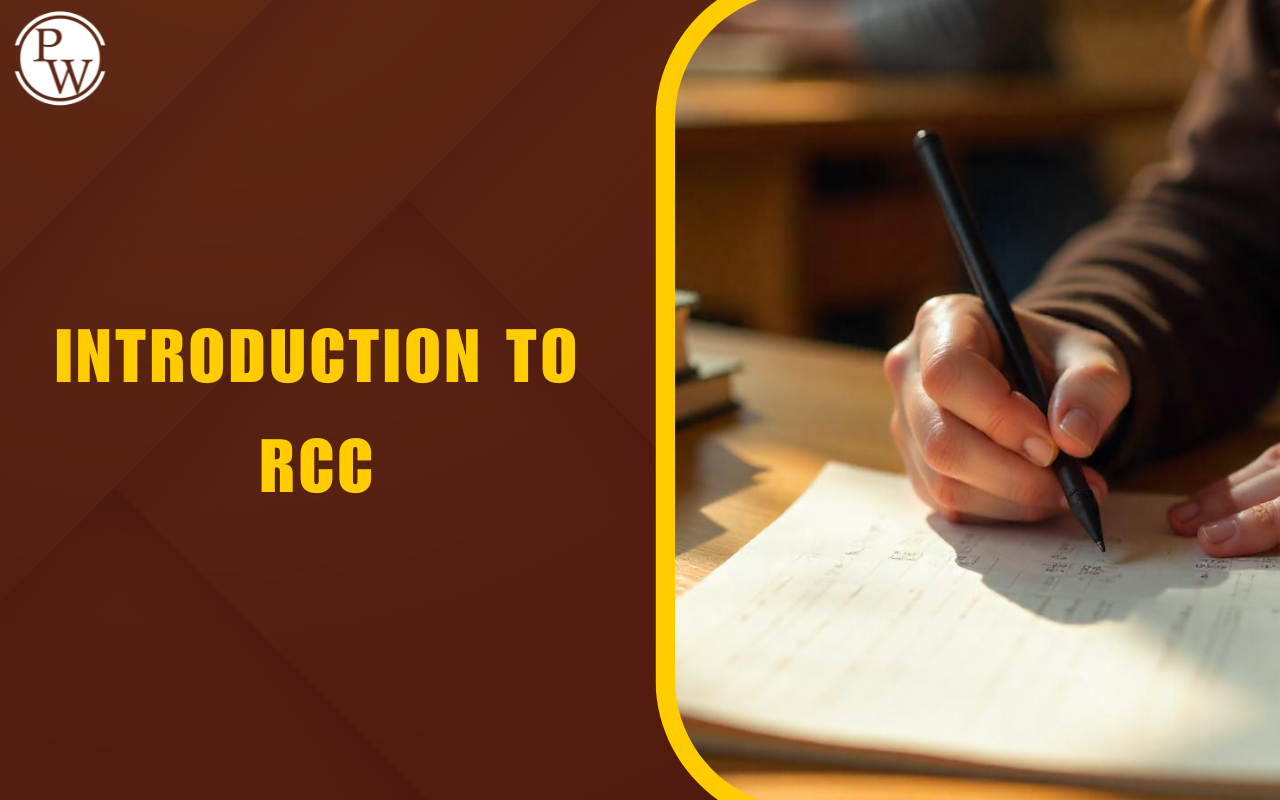
Electrical Engineering Subjects: Electrical Engineering is a branch of engineering that focuses on understanding and designing electronic devices and equipment, as well as applying electrical concepts. The electrical engineering course emphasizes power electronics and the design of efficient and trustworthy electronic systems.
Electrical engineering concerns physics, mechanics, optics, and related mathematics. Electrical engineering subjects include circuits, digital and analogue electronics, communication, electromagnetics, and power systems. Continue reading to learn more about electrical engineering subjects for the B.Tech., M.Tech., and GATE exams.Electrical Engineering Subjects
The electrical engineering subjects for B.Tech. are divided into eight semesters, while for M.Tech., the subjects are grouped into four semesters. Some significant electrical engineering subjects are calculus, electricity and magnetism, computer programming and utilization, chemistry, and network theory, among others. Students interested in studying Electrical Engineering subjects can pursue a B.Tech. degree program right after completing 10+2, and after the successful completion of their UG coursework, they can pursue an M.Tech in Electrical Engineering from IITs through GATE or other competitive exams. Read: Electrical Engineering Exam Pattern for GATEWhat is Electrical Engineering?
Electrical engineering is one of the most in-demand fields in India. This discipline includes a thorough study of electricity, including its basics, electromagnetics, electronics, and other related topics. Students learn about the theory, design, and application of devices and systems that use electricity and electromagnetism. Electrical Engineering programs are offered at both the undergraduate and postgraduate levels. The Bachelor of Technology (B.Tech) degree tends to be four years long, whereas the Master of Technology (M.Tech) program in Electrical Engineering lasts for two years.|
Electrical Engineering Overview |
|
| Particulars | Details |
| Courses Offered | B. Tech, B. E, M. Tech, Ph.D., Integrated B. Tech and M. Tech |
| Electrical Engineering Admission Eligibility |
|
| Duration of Offered Courses |
|
| Semesters During Course |
Semester Wise:
|
| Average Electrical Engineering Course Fee | INR 60,000 to 10 lakh (approximately) |
| Top Colleges | IIT Bombay, IIT Delhi, VIT Vellore, IIT Madras, and DTU |
| Electrical Engineers Average Starting Salary | INR 5 to 10 lakh (approximately) |
| Job Positions | Systems Analyst, Broadcast Engineer, Nuclear Engineer, etc |
| Entrance Exams | GATE , JEE Main , VITEEE, SRMJEEE, etc |
| Electrical Engineers Top Recruiters | Crompton Greaves, Alstom India Limited, Schneider Electric, Microtek, Siemens, and Adani Power Limited |
Core Electrical Engineering Subjects
The typical core electrical engineering subject covers electrical machines, power systems, control systems, signals and systems, and microprocessors. To find a detailed explanation of these core electrical engineering subjects, refer to the information tabulated below.|
Typical Core Electrical Engineering Subjects |
||
| Subject Name | Subject Details | Subtopics |
| Electrical Machines | In this electrical engineering subject, students gain knowledge about energy conversion in electrochemical systems, the functioning of three-phase transformers, and the principles of magnetism. |
|
| Power Systems | Students are taught hands-on elements of power systems, including the design features of transmission systems and power distribution systems. |
|
| Control Systems | In this electrical engineering subject, students gain knowledge about the fundamentals of analysis, modeling, and the responses of control systems in both discrete and continuous data systems. |
|
| Signals and Systems | Students learn about signal properties, signal analysis, and system theories. |
|
| Microprocessors | This electrical engineering subject provides in-depth knowledge about the programming, architecture, and instructions of 8-bit microprocessors and support chips. |
|
Elective Electrical Engineering Subjects
The elective subjects in electrical engineering include Semiconductor Devices, Smart Grid Technology, Fibre Optic Sensors, Computer Vision, and more. The complete elective subject list is explained in the table below.|
Electrical Engineering Typical Elective Subjects |
|
| Subject Title | Details |
| Semiconductor Devices | This subject covers Energy Bands, Crystal Structure, Fermi Level, LED, Semiconductor Lasers, photoconductors, and other related topics. |
| Electric Power Quality | Students in this subject acquire knowledge about power quality problems, including design criteria, tuned and detuned filters, passive filters, and more. |
| Fibre Optic Sensors | This electrical engineering subject includes interferometric sensors, classification of sensors, and their applications in various measurements. |
| Electric Drives | This elective EE subject delves into aspects such as the choice of drive, drive components, modes of operation, position control, fundamental equations, and related topics. |
| Smart Grid Technology | The subject explores desirable traits in a power grid, IP-based systems, privacy challenges, and smart grid technologies. |
| Computer Vision | Students are introduced to Computer Vision, covering topics like light and shading, segmentation, tracking, stereopsis, classification, and other relevant concepts. |
Electrical Engineering Subjects for B.Tech
Students interested in pursuing electrical engineering courses at the undergrad level must pass their 10+2 classes with at least 50% marks in the science stream, with subjects like physics, chemistry, and mathematics (PCM). The electrical engineering subjects for B.Tech include topics like mathematics, mechanics, English for communication, the basics of IT, electronic components and devices, and biomedical systems, among others. Find out the Indian Institute of Technology, Bombay semester-wise electrical engineering B.Tech. subjects tabulated below.|
B.Tech Electrical Engineering Subjects- Semester Wise |
|
| Electrical Engineering Subjects for Semester 1 | |
| Computer Programming and Utilization | Introduction to Electrical Systems (DIC-1) |
| Calculus | Electricity and Magnetism |
| Workshop Practice | Physics Lab |
| National Cadet Corps (NCC) | National Sports Organization (NSS) |
| National Service Scheme (NSS) | |
| Electrical Engineering Subjects for Semester 2 | |
| Chemistry | Linear Algebra and Ordinary Differential Equations 1 |
| Introduction to Electronics (DIC - 2) | Data Analysis and Interpretation |
| Chemistry Lab | Engineering Graphics and Drawing |
| National Cadet Corps (NCC) | National Sports Organization (NSS) |
| National Service Scheme (NSS) | |
| Electrical Engineering Subjects for Semester 3 | |
| Mathematics II (Complex Analysis and DE II) | Economics |
| Network Theory | Electronic Devices |
| Electronic Devices Lab | Measurements Lab |
| Electrical Engineering Subjects for Semester 4 | |
| Signals and Systems | Analog Circuits |
| Electrical machines and Power Electronics | Digital Systems |
| Analog Lab | Digital Circuits Lab |
| Machines Lab | |
| Electrical Engineering Subjects for Semester 5 | |
| Microprocessors | HSS Elective |
| Communication Systems | EM Waves |
| Probability and Random Processes | Communications Lab |
| Electrical Engineering Subjects for Semester 6 | |
| Control Systems | Digital Signal Processing |
| Digital Communications | Power Systems |
| Control Systems Lab | |
| Electrical Engineering Subjects for Semester 7 | |
| Environment Studies | Institute Elective I |
| Dept. Elective I | Dept. Elective II |
| BTP-I | |
| Electrical Engineering Subjects for Semester 8 | |
| Institute Elective II | Dept., Open Elective III |
| Dept./Open Elective IV | Dept. Elective V and Dept. Elective VI OR BTP-II |
| Elective Electrical Engineering Subjects for B.Tech | |
| Discrete Data and Digital Control | Advanced Network Analysis |
| Physical Electronics | High Power Semiconductor Devices |
| Information Theory and Coding | VLSI Technology |
| B. Tech Project II | Electronic Design Laboratory |
| Error Correcting Codes | Fibre Optic Communication |
| Radiating Systems | Physics of Transistors |
| Optimal Control Systems | Simulation of Circuits and Devices |
| Finite Fields and their Applications | Electric Drives I |
| A First Course in Optimization | Application of Power Electronics to Power Systems |
| Speech Processing | Introduction to MEMS |
| Circuit Simulation in Power Electronics | Behavioural Theory of Systems |
| Restructured Power Systems | Nanoelectronics |
| Computational Electromagnetics | |
Electrical Engineering Subjects for M.Tech
The electrical engineering subjects for M.Tech are grouped into a total of four semesters. Students can opt for M.Tech after completing their B.Tech or undergrad in relevant subjects. Furthermore, the M.Tech electrical engineering subjects encompass concepts related to linear system theory, digital control systems, optimal control and applications, etc. Check out the NIT Kurukshetra’s semester-wise electrical engineering subjects outlined in the table below.|
M.Tech Electrical Engineering Subjects- Semester Wise |
|
| Electrical Engineering Subjects for Semester 1 | |
| Linear System Theory | Digital Control System |
| Optimal Control and Applications | Elective-I |
| Elective-II | Elective-III |
| Modeling & Simulation LAB | Seminar |
| Electrical Engineering Subjects for Semester 2 | |
| Multivariable Control Systems | Nonlinear and Adaptive Control |
| Identification and Estimation | Elective-IV |
| Elective-V | Elective-VI (Departmental or Open) |
| Advanced Control Systems Lab | |
| Electrical Engineering Subjects for Semester 3 | |
| Dissertation Part-I | |
| Electrical Engineering Subjects for Semester 4 | |
| Dissertation Part-II | |
Electrical Engineering Subjects for GATE Examination
GATE (Graduate Aptitude Test in Engineering) is an entrance exam aspirants give in order to secure a seat in highly esteemed IITs, NITs, and other reputed institutions for higher studies. Many prestigious PSUs (Private Sector Undertakings) also recruit through GATE scores. Students preparing for the forthcoming GATE 2024 EE paper should know the electrical engineering subjects related to the examination. Therefore, the key electrical engineering subjects for GATE are tabulated in this section for aspirants' reference.| Core Electrical Engineering Subjects for GATE | |
| Subjects | Subtopics |
| Electric circuits |
|
| Electromagnetic Fields |
|
| Signals and Systems |
|
| Electrical Machines |
|
| Power Systems |
|
| Control Systems |
|
| Electrical and Electronic Measurements |
|
| Analog and Digital Electronics |
|
| Power Electronics |
|
Electrical Engineering Subjects Book
Students are advised to include the best books that comprehensively explain electrical engineering subjects, ensuring a well-rounded understanding of key concepts. Discover some of the top-rated books that effectively cover various subjects of electrical engineering presented below.| Electrical Engineering Subject Books | ||
| Subject | Book Name | Author(s) |
| Electrical Engineering, Aptitude, and Engineering Mathematics | GATE Wallah Topicwise PYQ Combo: Electrical Engineering + Engineering Mathematics & Aptitude | Physics Wallah |
| GATE Wallah Topic Wise Previous Year Questions-Electrical Engineering | Physics Wallah | |
| Engineering Thermodynamics | Fundamentals of Thermodynamics | Claus Borgnakke, Richard E. Sonntag |
| Electrical Machines | Electrical Machinery | A Fitzgerald, Charles Kingsley |
| Digital Electronics and Circuits | Digital Principles and Applications | Albert P. Malvino, Donald P. Leach |
| Electric Drives | Fundamentals of Electric Drives | Gopal K. Dubey |
| Control Systems | Automatic Control Systems | Benjamin C. Kuo |
| Power Transmission and Distribution | Electric Power Systems | B.M. Weedy, B.J. Cory, N. Jenkins, Goran Strbac |
| Power Electronics | Thyristorised Power Controllers | Gopal K. Dubey |
| Network Theory | Basic Circuit Theory | Charles A. Desoer, Ernest S. Kuh |
<b>Electrical Engineering Subjects</b> FAQs
What are electrical engineering subjects?
The electrical engineering subjects are concepts students learn during their undergrad and postgrad programs. They are based on the study of electricity, its fundamentals, electromagnetism, electronics, and other topics.
What are the key electrical engineering subjects?
Students will study numerous subjects throughout their course; however, some important electrical engineering subjects are Power Systems, Control Systems, Signals and Systems, Electrical Machines and Microprocessors.
प्रमुख इलेक्ट्रिकल इंजीनियरिंग विषय क्या हैं?
छात्र अपने पाठ्यक्रम के दौरान अनेक विषयों का अध्ययन करेंगे; हालाँकि, कुछ महत्वपूर्ण इलेक्ट्रिकल इंजीनियरिंग विषय पावर सिस्टम, कंट्रोल सिस्टम, सिग्नल और सिस्टम, इलेक्ट्रिकल मशीनें और माइक्रोप्रोसेसर हैं।
What are the electrical engineering subjects for M.Tech?
The electrical engineering subjects for M.Tech. are divided into four semesters: linear system theory, optimal Control and applications, among others. Read the above article for a complete electrical engineering subject list.
🔥 Trending Blogs
Talk to a counsellorHave doubts? Our support team will be happy to assist you!

Check out these Related Articles
Free Learning Resources
PW Books
Notes (Class 10-12)
PW Study Materials
Notes (Class 6-9)
Ncert Solutions
Govt Exams
Class 6th to 12th Online Courses
Govt Job Exams Courses
UPSC Coaching
Defence Exam Coaching
Gate Exam Coaching
Other Exams
Know about Physics Wallah
Physics Wallah is an Indian edtech platform that provides accessible & comprehensive learning experiences to students from Class 6th to postgraduate level. We also provide extensive NCERT solutions, sample paper, NEET, JEE Mains, BITSAT previous year papers & more such resources to students. Physics Wallah also caters to over 3.5 million registered students and over 78 lakh+ Youtube subscribers with 4.8 rating on its app.
We Stand Out because
We provide students with intensive courses with India’s qualified & experienced faculties & mentors. PW strives to make the learning experience comprehensive and accessible for students of all sections of society. We believe in empowering every single student who couldn't dream of a good career in engineering and medical field earlier.
Our Key Focus Areas
Physics Wallah's main focus is to make the learning experience as economical as possible for all students. With our affordable courses like Lakshya, Udaan and Arjuna and many others, we have been able to provide a platform for lakhs of aspirants. From providing Chemistry, Maths, Physics formula to giving e-books of eminent authors like RD Sharma, RS Aggarwal and Lakhmir Singh, PW focuses on every single student's need for preparation.
What Makes Us Different
Physics Wallah strives to develop a comprehensive pedagogical structure for students, where they get a state-of-the-art learning experience with study material and resources. Apart from catering students preparing for JEE Mains and NEET, PW also provides study material for each state board like Uttar Pradesh, Bihar, and others
Copyright © 2026 Physicswallah Limited All rights reserved.









